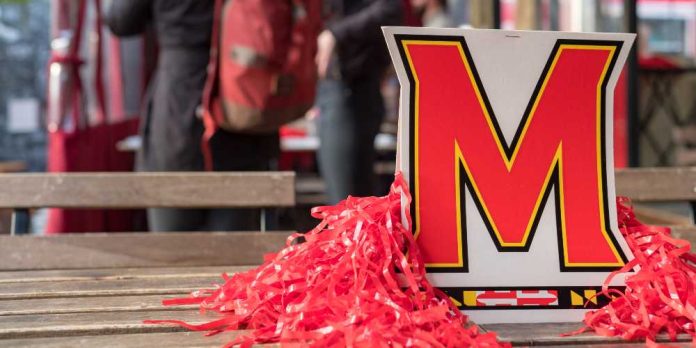A proposed bill in Maryland could kill an existing agreement between the University of Maryland and PointsBet Sportsbook.
The legislation, which has been introduced in the House and Senate as SB620 and HB802, expressly prohibits colleges and universities in the state from working with sportsbooks. The legislation is sponsored by Delegate Jheanelle Wilkins and Sens. Shelly Hettleman and Craig Zucker. The legislation describes its intent:
“For the purpose of prohibiting institutions of higher education from entering into a contract with a certain regulated gaming entity or a certain agent of a regulated gaming entity if the institution of higher education receives certain compensation for student participation in certain sports wagering; providing that a certain contract formed by a public institution of higher education is subject to public inspection in accordance with the Maryland Public Information Act.”
The bill also stipulates that marketing partners, such as affiliates, would not be allowed to enter into commercial agreements with colleges either.
While this could impact multiple operators and affiliates, it will most profoundly impact PointsBet. The sportsbook inked a marketing deal with the University of Maryland in December 2021 similar to a deal they reached with the University of Colorado at Boulder in 2020.
The terms of the deal included in-stadium and in-arena activations at Maryland athletic events. There was also a problem gambling program as part of the deal.
“Maryland Athletics continues to lead boldly with the first deal of its kind in the Big Ten Conference and in the region,” Maryland Executive Associate Athletic Director and Chief Strategy Officer Brian Ullmann said at the time.
Maryland is not the only state putting pressure on operators to avoid colleges. Massachusetts interrogated operators like Caesars about their involvement with colleges and asked operators, including PoitnsBet, to pledge not to advertise on college campuses or conduct marketing deals with Massachusetts colleges and universities.
The bill had a productive hearing earlier this month and remains in committee.














